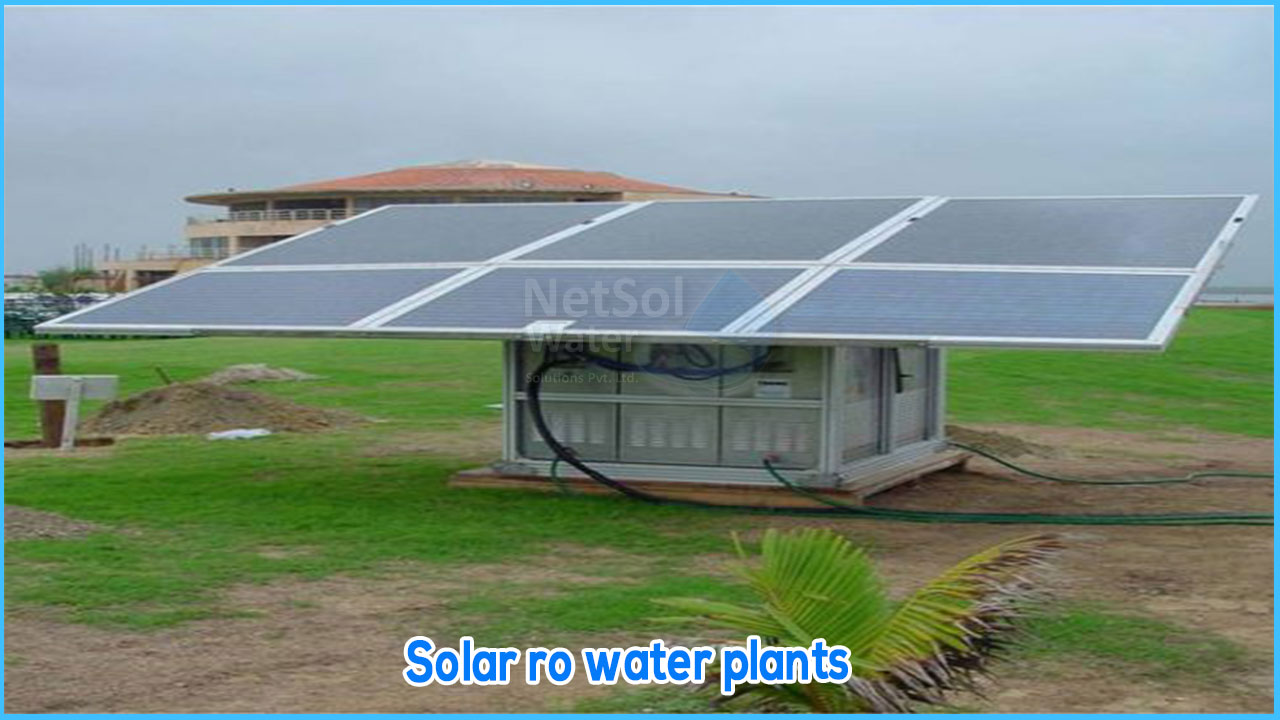The global lack of safe drinking water has required study and development in sea and brackish water desalination using renewable energy sources. Because of its energy economy and versatility in comparison to other water desalination technologies, reverse osmosis membrane desalination has gained popularity in recent years. It is critical to monitor and maintain system conditions at proper set points when operating the reverse osmosis desalination unit in order to generate the required amount of clean, portable water while avoiding system damage.In the context of unpredictability in feed water salinity and input power, it is also desirable to discover operating strategies to lower the energy consumption of the reverse osmosis desalination plant.
SOLAR-RO is most cost-competitive for small-scale systems where other technologies are less cost-competitive. Salty water is forced to flow through a membrane in the RO filtration process, separating the saline solution from the solute. The main source of energy for the RO process is the energy required to pressurise the feed water. Although reverse osmosis is a scalable process, small-scale systems have lower energy efficiency.
In India, solar RO systems are a relatively recent concept. Solar energy is used to power the RO systems, which also provide clean drinking water. Solar RO Plants of this sort may purify water from any source, including rivers, ponds, and bore wells.The SOLAR RO system is made up of two parts: a power generation unit and a desalination unit. Because the RO unit requires a stable power supply, the system's electricity will be supplied by the solar PV array, and batteries will be linked to provide that power. The PV-generated energy is stored in a battery bank. The loads are powered by the stored energy. On the brine side, the RO desalination process comprises of a high-pressure pump, membrane unit, and pressure control valve.
The need for solar water purifier
Do you know that 25% of the Indian population is not linked to the grid, and another 30% has restricted connectivity? Solar-powered RO (Reverse Osmosis) and UF (Ultra Filtration) plants are a benefit to rural India since they provide safe drinking water without relying on inconsistent or non-existent energy. In remote and rural India, a solar-powered water purifier solution can help supply the most up-to-date water purification technologies.
Advantages of Solar-Powered RO Systems
When compared to traditional water pumps that run on diesel or the grid, solar-powered RO systems are designed to run with or fully independent of energy.For diverse quality ranges of water inputs, employ the most up-to-date RO or UF technology.These provide both automatic and manual water dispensing options. Moreover, these solar RO water systems can purify water from any source. Water from river, pond or bore well, these solar RO systems can deliver safe drinking water anywhere you need; in addition, these systems are highly suitable for military camps, village areas and fairs and tourist places where arrangement of temporary drinking water is a prime requisite at minimal price.




